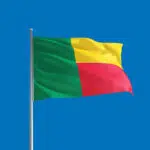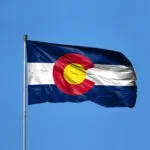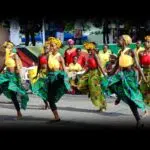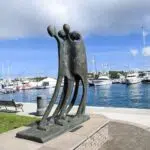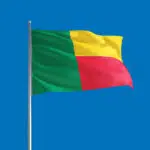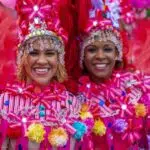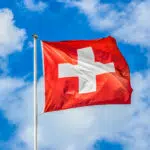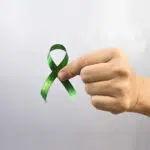Emancipation Day in Guyana is annually observed on August 1. It marks the abolition of slavery in Guyana and commemorates the end of years of dehumanization and the resurgence of the African spirit. The holiday is significant not just as a calendar event but as a new lease of life for the Guyanese nation as we know it.
History of Emancipation Day (Guyana)
Slavery came to Guyanese shores in the 17th century through the Dutch West India Company, which sent slave ships loaded with hundreds of fresh enslaved Africans across the Atlantic every month. Stripped of their dignity, the enslaved people traveled like inhuman cargo, and many died en route. Those who survived the passage landed into a life of hard labor on plantations owned by Europeans. By the mid-1600s, thousands of enslaved people worked on Guyanese plantations. Even the slightest dissent, such as a refusal to work because of sickness, led to torture, whippings, or execution. It seemed the African people would be treated like animals forever.
However, hope arrived in the form of William Wilberforce — a British politician and philanthropist who spearheaded a movement to abolish the Trans-Atlantic Slave Trade. As a result, the British Empire abolished slavery through the Slavery Abolition Act in 1833. The law came into effect on August 1 in Guyana but only for children under six. Teenagers and adults continued working more than 90 hours a week without pay in hellish living conditions, but they never lost hope. Five years later, on August 1, 1838, all enslaved people in Guyana became free.
Despite leaving behind a lifetime of cruelty and suppression, the free Guyanese had to contend with new challenges. Thousands of miles from home in a foreign land, the Africans in Guyana had no identity or means of survival. They had no money or systems of government for support. But they had the power of community and started from scratch. They pooled resources and built cooperatives to uplift the community as a whole. Slowly but surely, living conditions, income, and general morale improved. Emancipation Day celebrates their resilience, determination, and eventual triumph.
Emancipation Day (Guyana) timeline
The Portuguese complete a slave trade voyage to Brazil.
Over 2,500 enslaved African people begin a life of misery working on sugar plantations.
The British Empire abolishes slavery, thanks to the efforts of William Wilberforce.
Formerly enslaved Africans begin a new life in Guyana — their new home.
Emancipation Day (Guyana) FAQs
When did Guyana gain emancipation?
Emancipation efforts began in 1823 when about 13,000 enslaved people rebelled against their owners. The rebellion was unsuccessful but created enough momentum for the abolition movement and eventual emancipation in 1838.
Does Guyana celebrate Emancipation Day?
All English-speaking countries in the Caribbean annually celebrate Emancipation Day on August 1.
What was Guyana called before independence?
Guyana was known as British Guiana before independence. The country used to be part of a British West Indies colony.
How to Observe Emancipation Day (Guyana)
Celebrate African culture
Many people in Guyana celebrate their African heritage on Emancipation Day. You can also celebrate their forefathers’ determination, resilience, and cultural heritage with them.
Visit Guyana
Emancipation Day is ideal for witnessing diverse Guyanese customs and public rituals. Book your tickets and join the festivities.
Discover Guyanese music
The music in Guyana has African, European, Amerindian, and Indian influences. It’s nothing like you’ve ever heard before. Start your musical journey with genres like Calypso and Shanto and perhaps a little reggae and Indo-Caribbean.
5 Facts About Guyana That Will Blow Your Mind
It’s unusual
Guyana holds the distinction of being the only English-speaking country in South America.
Its name has a story behind it
The country’s official name is the Co-operative Republic of Guyana to mark the contribution of cooperatives to strengthening the Guyanese economy.
It contributed a “Doctor Who”
Peter Davidson — of Guyanese and English descent — played the fifth “Doctor Who” in the B.B.C. science fiction series in 1982.
It has some disturbing statistics
The country has the world’s second-highest suicide rates, with Lesotho at number one.
It’s rich in uninhabitable forests
Guyana’s expansive forest cover has infertile soil, which is why most people live in coastal areas.
Why Emancipation Day (Guyana) is Important
It celebrates freedom
Emancipation Day in Guyana is a cause for celebration. It honors everything from culture to people to freedom, the most treasured quantity of them all.
It honors the struggle for freedom
The holiday chronicles the sufferings, triumphs, and resilience of displaced Africans in Guyana. It seeks to remember them always.
It’s a riot of color
Emancipation Day is a whole mood. From drummers and dancers to vigils and speeches, the party is never-ending.
Emancipation Day (Guyana) dates
| Year | Date | Day |
|---|---|---|
| 2025 | August 1 | Friday |
| 2026 | August 1 | Saturday |
| 2027 | August 1 | Sunday |
| 2028 | August 1 | Tuesday |
| 2029 | August 1 | Wednesday |





